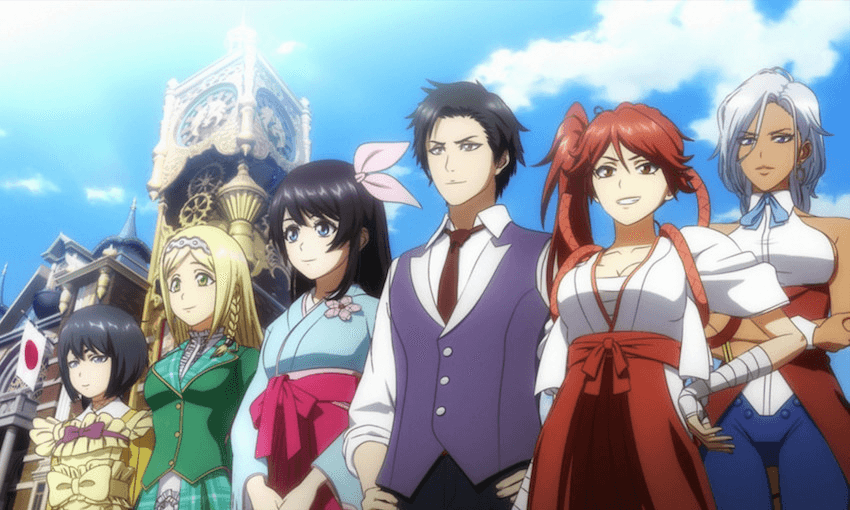Reality TV star Harry Jowsey has been taken to task on YouTube by a British teenager over a $600 online business accelerator scheme.
He was the charming Aussie with the Ledger-esque smile who graced our screens last year in New Zealand reality show Heartbreak Island, and more recently made his international telly debut on Netflix’s Too Hot To Handle, but now Harry Jowsey has been accused of billing a teenager hundreds of dollars for an incomplete and misleading online coaching course.
In a video uploaded to YouTube last week, 17-year-old Mi Ying recounted the events of October last year that, she said, left her being £300 (NZ$600) out of pocket after forking out for a “business accelerator” run by Jowsey and his friend, “Eli”.
Jowsey’s first stumble into the spotlight was on TVNZ’s 2018 reality show Heartbreak Island, which he won with then-girlfriend Georgia Bryers. The pair broke up very shortly after the show finished, and Jowsey decided to take another shot at love on reality TV. In April, Too Hot to Handle was released on Netflix and Jowsey’s familiar face was back. Following a string of successful Netflix reality formats, Too Hot To Handle became instantly popular, and Jowsey metamorphosed from New Zealand telly’s cheeky Aussie to the world’s cheeky Aussie. He now has a merch line, consisting of hoodies and tees embroidered with his “signature phrases” like “naughty possum” and “boyfriend dick”.
Ying said she and a friend had been looking into ways to get an e-commerce business off the ground when they came across his Instagram account. At the time he had about 40,000 followers, a speck against his 2.8 million following today. Jowsey was promoting a business accelerator, asking people to put in £1,000 for a package including business advice, a website and marketing. Ying said she was interested, but couldn’t afford the initial £1,000, so the pair settled on a programme costing £297.
In a voice message she plays in the YouTube video, which she describes as being from Jowsey, Ying is told that “Eli is getting the final people onboard… so if you’re ready to jump onboard, take action and go out there and start crushing it, let’s do it. We’ll get you onboard now and by the time you wake up you’ll be set up and ready to go.”
Ying said she invested that night, reassured by a “100% money back guarantee” she was promised if her business didn’t make any money. Her plan was to create an e-commerce business that sent product straight from the supplier to the consumer. She would sell products through her website, but wouldn’t need to worry about handling or shipping the product herself. It’s a strategy called dropshipping that is widely used by online retailers.
The first component of the accelerator was a three-hour-long mentorship video, from which Ying was instructed to take extensive notes. She said the information could have been summarised in a much shorter video, and later found one on TikTok that explained the exact same concepts.
“A few days after I’d paid for this e-com programme through Instagram, I came across a TikTok that literally gave me all the information they’d given me in that three-hour-plus video, in one minute. It explained word for word exactly what Eli and Harry had sold to me.”
She says she was reassured by the promised 100% refund if her business made no money, so she invested. When it came to setting up her website, however, Ying noticed a few things that she didn’t think added up to the “all-inclusive” package she had been told her £297 would cover.
After two weeks, she realised she would have to pay an additional £30 a month for a website, and then £300 for Facebook marketing as part of the programme. She tried to pull out. She had made no money thus far because she couldn’t afford to even finish setting up her business, but when she asked Jowsey for her refund, all she got were some voice messages telling her not to have “a loser mentality”, she said.
In a voice message, which she said came from Jowsey, the plea was: “I don’t want you to give up I don’t want you to have this loser mentality where you give up and that’s going to be the end, because even with your YouTube [channel] I can see that you hustle, you have a drive and you want to make things happen.”
Ying was then told that unless she completed all the steps in the programme, the money-back guarantee wouldn’t be upheld, she said. These steps included paying the extra costs for a website and Facebook marketing, which, she said, she could not afford. According to Ying, there was no mention of the exceptions to the money-back guarantee until after she had paid. Jowsey is no longer advertising these services on his social media accounts.
Ying said the whole ordeal had been very embarrassing for her, and wants people to make sure they have done their research before signing up for anything like this.
“All of these programmes on Instagram, you can do for free … You need to be careful where you’re investing your money, you need to research it first, because there is so much information on the internet for free.
“And if you have a gut feeling that it’s wrong, it is wrong.”
Since her video went live, Ying was “contacted by [Jowsey’s] people” and received a full refund, she told The Spinoff. She was asked to take the video down. It is now unlisted on her YouTube account, but remains online.
Jowsey has not responded to requests for comment.






